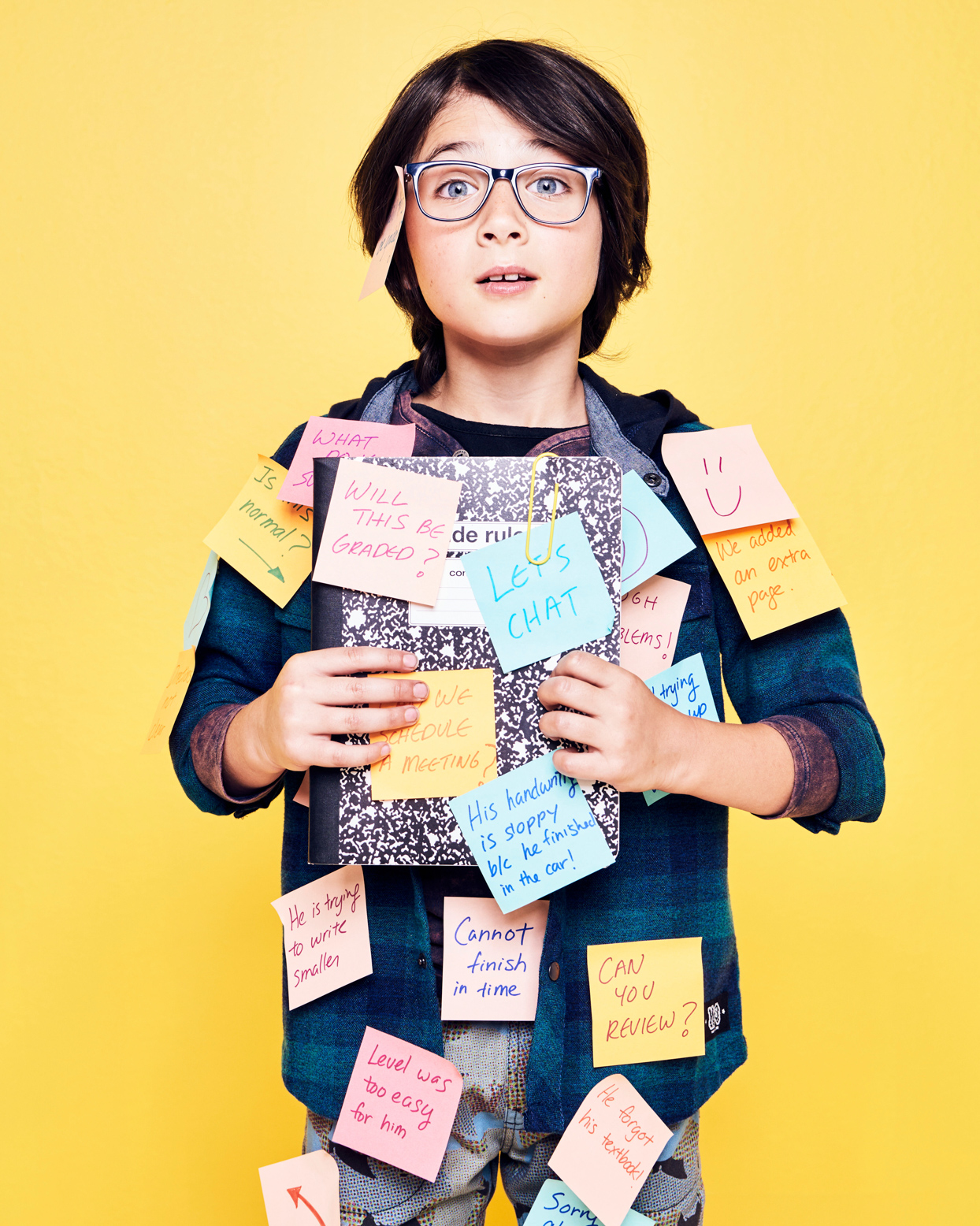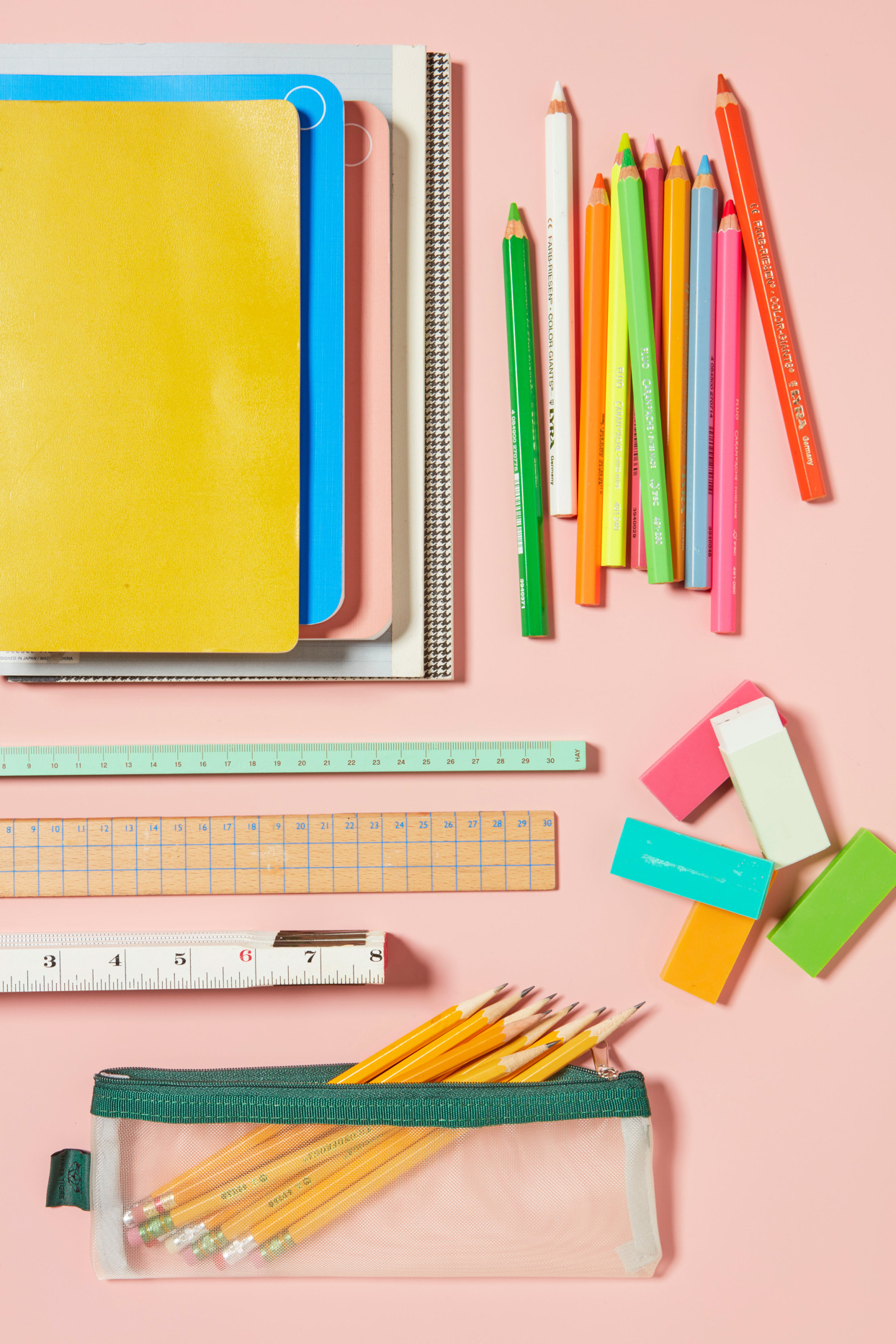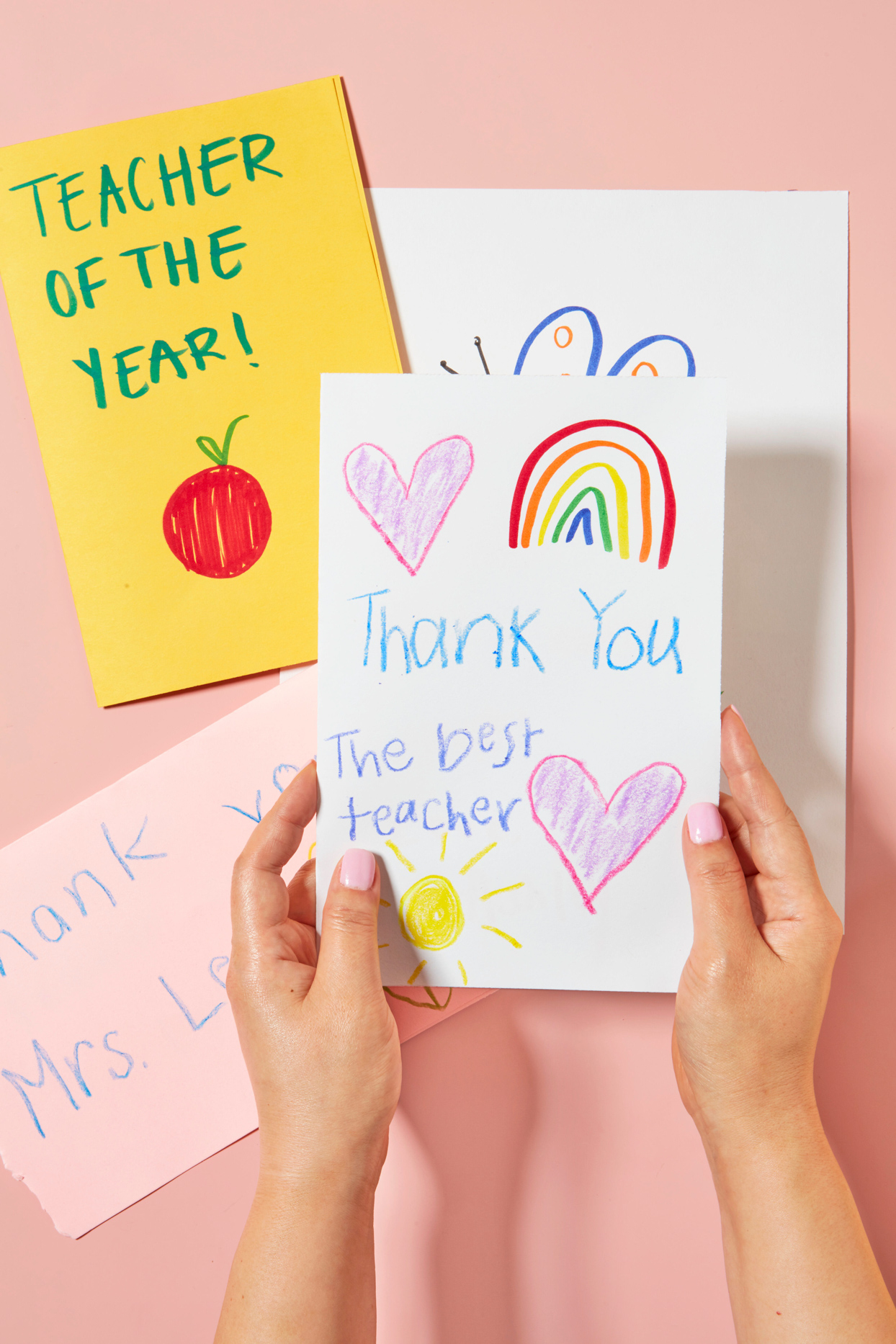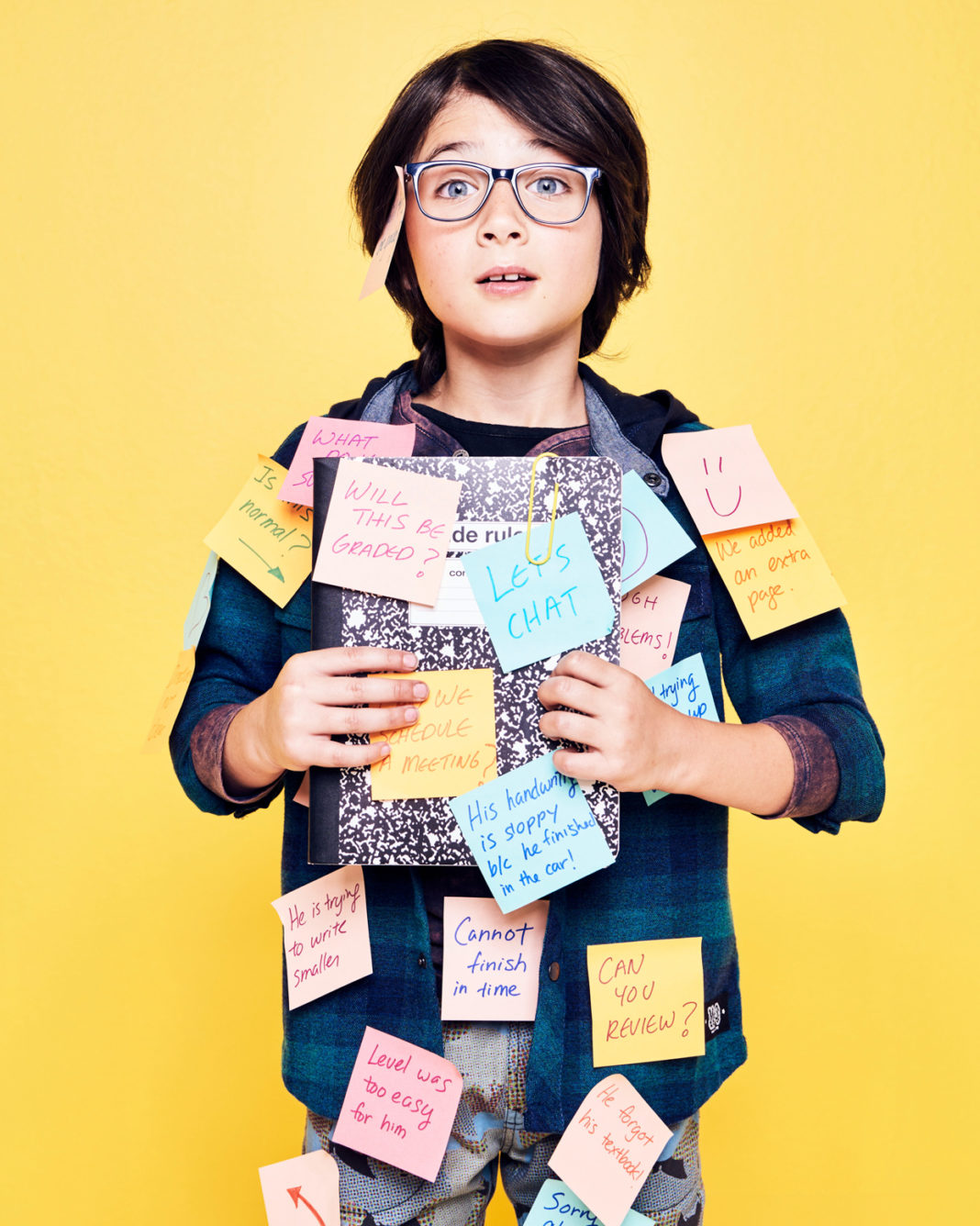
The more we understand what they're grappling with behind the scenes, the better prepared we can all be to help our children thrive this year. Teachers told us what they wish they could tell you.
1. Our priorities have shifted.
A welcome result of the pandemic mentioned by every teacher we spoke with? An emphasis on social-emotional learning (SEL). "The fact that it's become part of the curriculum is huge," says Jessica Jones, a K–5 art teacher in Dallas. "Mental health is going to continue to be a real issue for kids years from now because of the past year."
"We begin every morning with an SEL lesson, using a program called Sanford Harmony, which has cards with conversation starters that give kids the opportunity to share with each other," says Lisa Bloom, a fifth-grade teacher in New York City. An example: Think of how you're feeling today. What color best describes this feeling. Why? There has also been an increase in mindfulness to address students' emotional needs. "We did a lot of breathing exercises and simple meditations," says Monique Keith Golding, a second-grade inclusion-class teacher in Centerport, New York. "We had a school motto, 'We can do hard things!' and we centered our SEL lessons on this theme."
The need for mask breaks led to new routines—getting outside, getting children's bodies moving, getting fresh air—that schools hope to continue. "We took daily walks, ate snack outside, and even did lessons on the grass," Keith Golding says. "This was something we never did in the past. It was amazing to see the impact some outdoor time had on the children—and teachers."
2. Kids need to see that you trust us.
"We go through years of training, we have continued education while teaching, and we really know what we are doing," says Dana Kindelmann, a third-grade teacher in Greenville, South Carolina. "If you side with us and let your kids know that we're on the same team, we will grow your child together." That means talking positively about the teachers to your child even if there is an issue you need to address. "They are with us all day, so try not to make them feel caught in the middle if you don't like something we do," adds Kelly Smith, a first-grade teacher in Montgomery County, Pennsylvania. "And give us the benefit of the doubt, just as we give you the benefit of the doubt when your children tell us things that happen at home."

3. It’s key to stay in the loop.
Keep track of all the printed information that comes home (check your child's backpack and folders daily in the younger grades), read the emails, and check the school portal before asking questions. "We know that life can be overwhelming, but if you are unsure about something, please type a quick two-line email asking if you missed something," says Deborah Phillips, a second-grade teacher in Greenlawn, New York. "Things get overlooked, we understand, but just ask us." Double-check that you have any login details, and familiarize yourself with the digital platform your child's school uses. It can be frustrating, but it's crucial for staying involved and on top of things.
4. Your children are more resilient than you realize.
"Last year, my students ages 3, 4, and 5 rose to the occasion and didn't skip a beat," says DJ Mitchell, a preschool teacher in Lincoln, Massachusetts. "They wore masks every day, spent most of the time outside—in the cold, rain, and wind—spread out to eat, and they never complained." Stephanie Scalise, a third-grade teacher in Naples, Florida, had a tougher time wearing a mask than her students did. It may not always seem that way, but kids handle change much better than most adults do, she says. "Seeing life through a child's eyes helps remind you what life is all about."
5. We are always grateful for extra supplies.
The top five classroom needs mentioned by the teachers we spoke with:
6. Teaching is more than it appears to be.
It's like an iceberg. The part you see is in the classroom, but the part underneath is all the preparation. "You spend your day engaged with the students, and then you spend your afternoon and night thinking about them, planning for them, creating things for them," says Heidi Moran, an elementary-school teacher in Beverly, Massachusetts. "The most important part of my job, teaching my kids, gets done during school hours, and everything else—planning, grading, continuing education, parent communication—gets done after school, before school, on the weekends, and over the summer," Jones says. So let's all stop telling teachers, "Oh, it must be nice to have summers off." Many teach for an extended school year, some take classes on new ideas to bring to the classroom, and all are planning for the upcoming year.

7. Kids should do homework as independently as possible.
This is so important, says Danielle Crockett, a third-grade teacher in Queens, New York. "Teachers work hard to teach students new ideas, and it's frustrating when assignments are completed by their parents. We need to see that the children understand the work, not you."
8. A simple thank-you note means so much to us.
"Parents who acknowledge when they see their child's happiness in school, educational success, or a positive change in behavior goes such a long way for teachers," says Kristina Garcia, a second-grade teacher in Loxahatchee, Florida. "We feel appreciated when others let us know we are doing a good job. That's really all we need." What to say? "You're awesome!" or "Thanks for teaching my kid to read!" or "That was a really cool project!" Bonus: Send a cc to the principal or the superintendent.
9. Think before you vent.
You can also express appreciation by not bashing teachers on social media. "You can't say 'My daughter's teacher who I will not name' and think you're being discreet," Smith says. "Yes, we will make mistakes, but if you had 23 pairs of eyes on you all day that report home, you wouldn't like people posting opinions of you either." And if you see a teacher leaving along with the buses, it doesn't mean they don't care—they have lives too. The teacher might be trying to catch their own child's soccer game or take them to a doctor's appointment, or they're just headed out with some friends for happy hour. "Please remember that we take our jobs seriously, but we're people too," Phillips says.

10. We love your kids so much.
"We lie awake at night worrying about your son or daughter the same way we do our own children," says Ginny Goerz, a preschool teacher in Centerville, Ohio. "I take my job home every single day—not just the lesson plans or tests that need to be graded. I take home the weight of the responsibility of being an educator," says Meg Terry, a first-grade teacher in Orange County, Florida. "I want to create the best lessons, impart the most knowledge, build the greatest level of self-love and self-esteem, and help create the kindest tiny humans I can."
11. We’re truly excited about this year.
Everyone is looking forward to the return to normalcy with our fingers and toes crossed—no masks! no plastic partitions! no social distancing!—but teachers are excited about other benefits of lifting restrictions too. "I really missed hugging the kids—and dancing together during our brain breaks!" Kindelmann says. "I want my students to see me smiling at them with my whole face!" Goerz says. And the education piece of it is huge—going back to small reading groups and engaged learning with centers and morning meeting in a circle on the rug. "We all want parents to take a deep breath because you did an amazing job last year," Moran says. "Now let's continue to work together to help ensure that students feel successful, included, and happy."
This article originally appeared in Parents magazine's September 2021 issue as "Empathize with Educators" Want more from the magazine? Sign up for a monthly print subscription here
Parents magazine
































